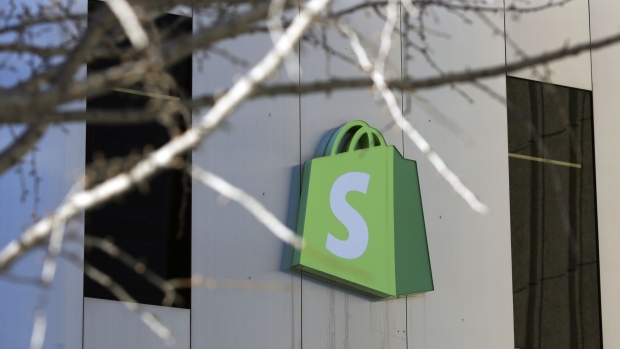Jun 24, 2024
The Daily Chase: Target takes aim at third-party selling with Shopify partnership
, BNN Bloomberg

Here are five things you need to know this morning:
Target partners with Shopify to boost third party online offerings: U.S. retailer Target has struck a deal with Canadian e-commerce giant Shopify to beef up its online marketplace. The deal will see Target use Shopify to allow third-party merchants to sell things via Target’s online portal, Target Plus. It’s a move to keep up with rivals Walmart and Amazon where revenue from third-party selling is a growing business. Shopify merchants can apply to sell their wares on Target’s portal, and a select number of them will be invited to sell inside physical stores, too.
Gone Fission: Paladin Energy Ltd. has launched a friendly all-stock takeover offer for TSX-listed uranium miner Fission Uranium Corp. in a move to create a new major player in the booming sector. Paladin’s all-stock offer implies $1.30 for every Fission share, a 26 per cent premium to the last closing price. After years of inactivity, uranium prices have surged in recent years on booming demand for nuclear power and rising concerns about a lack of supply. Paladin shares trade in Australia but as part of the deal, the company would dual-list on the TSX.
Real estate slump leaves trail of red ink across pension fund books: Canada’s major pension plans have all revealed their financial performances for the past year in recent weeks, and if there’s one trend that can be gleaned from the numbers, it’s that the value of their real estate portfolios have all taken major haircuts. CPP, the Caisse, Teachers and OMERS all revealed a declined of between five and seven per cent in their commercial real estate portfolios. The decline at the Public Sector Pension Investment Board, which invests on behalf of federal civil servants, was even larger, down 16 per cent. Bloomberg reports that the trend has prompted a rethink in strategy at the funds which typically viewed real estate as an attractive holding for their long-term mindset. “The real estate sector is changing dramatically,” York University professor Jim Clayton said. “We have this structural shift in the way we work and live which has sped up post-Covid. So I think you have people really rethinking what real estate is.”
Canadian crude replacing Iraqi oil on U.S. West Coast: Given the years it took to build and the billions of dollars it cost, the business case for the TMX Pipeline Expansion was always to open up Asian markets for Canadian oil. But an interesting trend has emerged in the weeks since the pipeline has opened, in that a major buyer for Canadian oil isn’t an ocean away, but much closer to home. Bloomberg reports that refineries in California and Washington are set to buy about 150,000 barrels a day of Canadian oil in June. That’s seven times more than they used to buy, and it’s more than the 81,000 barrels a day that are bound for China, and the 50,000 to India put together. Time will tell where the long term trade winds blow, but in the short term, it’s fascinating to watch the U.S. and Canadian oil sectors getting even more integrated than they were before.
News on Chinese EV tariffs expected today: We’re expecting some details on Canada’s plans to implement tariffs on imported Chinese electric vehicles as soon as today. Deputy Prime Minister Chrystia Freeland will be making an announcement in Woodbridge, Ont. this afternoon that is expected to be on the subject of slapping a levy on Chinese-made electric vehicles. The U.S. recently implemented a tariff of more than 100 per cent, while the EU’s top levy is closer to 50 per cent. It’s unclear where Canada might settle in, but we’ll report more details as they emerge.